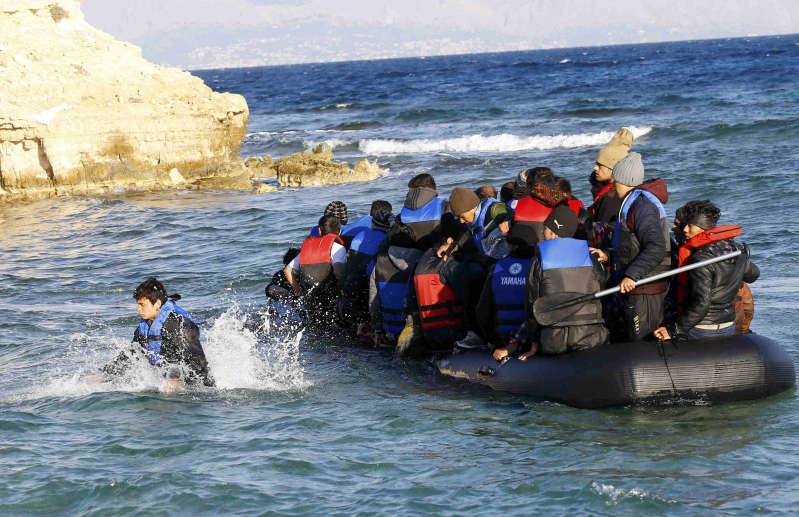
Greece relocated six asylum-seeking families to Luxembourg on Wednesday, the first such transfer from its soil under an European Union plan to ease the burden on EU periphery nations inundated by an influx of hundreds of thousands of refugees.
About 86 people have already been transferred directly from Italy to Sweden and Finland under the scheme. But some EU member states have not signed up to it, citing a lack of resources and infrastructure or fears their stability and security could be at risk from taking in large numbers of migrants.
"The relocation of Iraqi and Syrian refugees that we saw today is an encouraging signal we are moving in the right direction," European Parliament head Martin Schulz said during a visit to Athens.
"It is not sufficient that (only) eight states of the EU are participating in the relocation. This is a common challenge."
Six families with 30 people from Syria and Iraq were relocated from Athens under the two-year, 780-million-euro ($852.15 million) scheme funded by the 28-member European Union.
Smiling parents holding young children posed for "selfies" with Greek Prime Minister Alexis Tsipras and Luxembourg Foreign Minister Jean Asselborn beside a Greek airliner on the runway of Athens international airport before boarding the flight, live footage broadcast by state television showed."Thirty in the face of thousands who have fled their homes in Syria and Iraq is a drop in the ocean," Tsipras said.
"But we hope that this becomes a stream, and then a river of humanity and shared responsibility, because these are the principles upon which the European Union was built."
EU-WIDE SQUABBLING OVER BURDEN-SHARING
More than 580,000 refugees have entered Greece via its long Mediterranean sea boundary with Turkey this year.
In September, after crisis talks marred by bitter disputes over burden-sharing, EU leaders approved the transfer of about 160,000 asylum seekers from Greece and Italy.
But since then, only nine governments had so far made a total of just 700 places available, EU chief executive Jean-Claude Juncker said last week. He said national governments were sapping efforts to tackle the migration crisis by not honoring commitments on money and resources.
The death toll from drowning among refugees making the short but dangerous crossing from Turkey to Greece's outlying eastern islands has risen in recent weeks as seas have gotten rougher and temperatures have dropped as winter approaches.
From the beginning of the year until Oct. 29, at least 435 people died, including many children. Such danger could be avoided if refugees were registered and entered legal relocation schemes from Turkey itself, Tsipras said.
Five more people, three of them children, died in an overnight sea crossing from Turkey to the island of Lesbos, which has received the bulk of refugees coming from Turkey just a few miles away across the water.
Lesbos has run out of space in its mortuary for dead refugees and is now keeping them in a freezer truck. It has declared three days of mourning in memory of the victims.
The crisis has created a tough logistical, financial and humanitarian challenge for cash-strapped Greece, which signed up to its third international bailout this year, though Greeks themselves are by and large sympathetic to the migrants' plight.
But it has triggered bickering among other EU partners on how to handle the continent's biggest humanitarian crisis since World War Two 70 years ago. Hungary's anti-immigrant government has erected fences to keep asylum seekers out.
Tsipras was speaking behind a large frame of a photograph of three elderly Greek women on Lesbos bottle-feeding an infant and singing it a lullaby while its refugee mother looks on.
"This photo is the real, good face of Europe, and that's the Europe we want to live in," Tsipras said. "Not in a Europe which builds walls and erects barbed wire fences."






